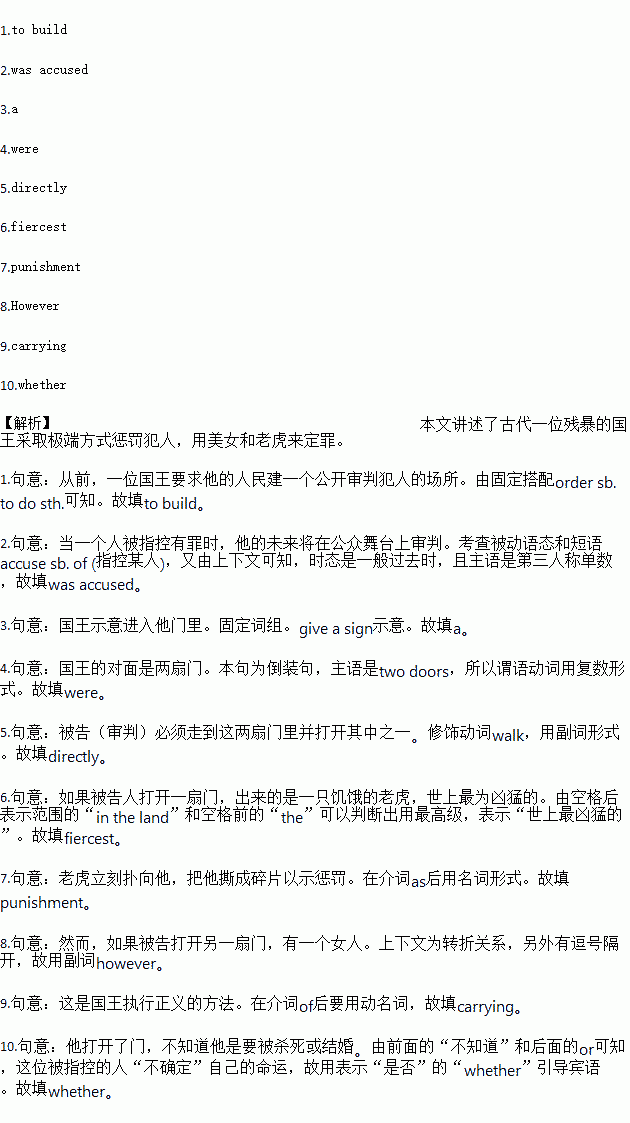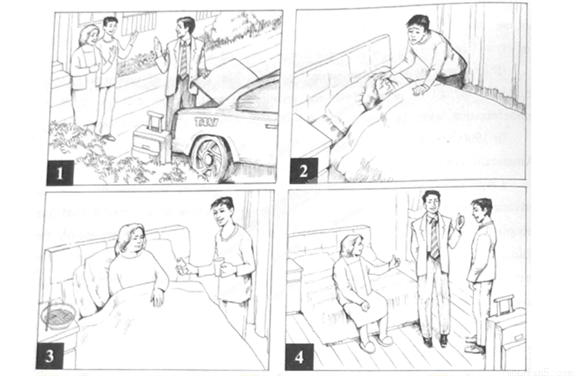A young man was getting ready to graduate from college. For many months he had _______a beautiful sports car in a showroom, and knowing his father could well_______it, he told him that was all he wanted.
As Graduation Day came near, the young man awaited _______ that his father had bought the car. _______, on the morning of his graduation, his father called him into his_______ study room. His father told him how _______ he was to have such a fine son, and told him how _______ he loved him. He handed his son a beautifully_______ gift box.
Curious, and somewhat disappointed, the young man opened the box and _______ a lovely, leather- bound (皮纸封面) Bible, ________ the young man's name pressed in gold. ________, he raised his voice to his father, and said “With ________ your money, you give me a Bible?” and stormed out of the house.
Many years passed and the young man was very successful in ________. He had a beautiful home and wonderful family, but realized his father was very ________, and thought perhaps he should go to him. He had not seen him ________ that graduation day.
Before he could make arrangements, he received a telegram________ him his father had passed away, and gave all his possessions to his son. He needed to come home immediately and ________things.
When he arrived at his father's house, sudden ________and regret filled his heart. He began to search through his father's important papers and saw the still gift — wrapped Bible ________ as he had left it years ago. With tears, he opened the Bible and began to turn the pages. Suddenly, a car key dropped from the back of the ________. It had a tag (标签) with the date of his graduation on it, and the words PAID IN FULL.
1.A. admired B. watched C. seen D. noticed
2.A. offer B. afford C. serve D. supply
3.A. marks B. supports C. signs D. promises
4.A. Finally B. Instead C. So D. Shortly
5.A. public B. hard C. lazy D. private
6.A. proud B. sad C. upset D. puzzled
7.A. many B. far C. much D. often
8.A. typed B. wrapped C. written D. painted
9.A. looked B. reached C. showed D. found
10.A. with B. while C. after D. when
11.A. Interested B. Pleased C. Angry D. Disappointed
12.A. none B. all C. little D. bit
13.A. business B. study C. city D. home
14.A. healthy B. strong C. young D. old
15.A. on B. until C. since D. after
16.A. telling B. showing C. saying D. talking
17.A. look for B. take care of C. care D. mind
18.A. excitement B. disappointment C. surprise D. sadness
19.A. but B. right C. just D. only
20.A. Bible B. bed C. desk D. door
 阅读快车系列答案
阅读快车系列答案

